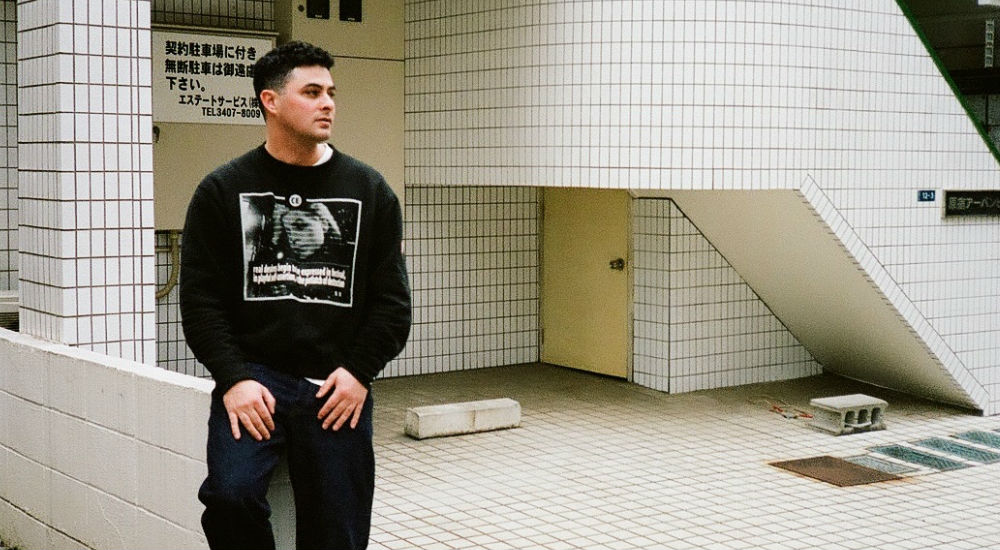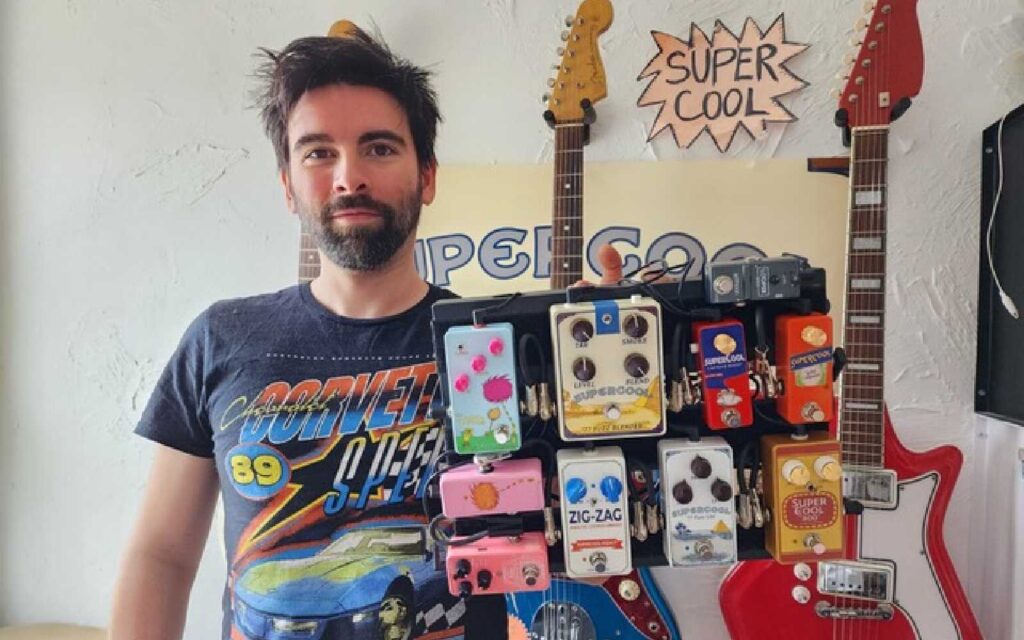Tell us about the creation of Union: Integration Of The Shadow. How did you go about navigating the production process for this particular release?
Originally for the Sonny project I had been making underground Balearic house music, but knew that with the album I wanted to incorporate more of my songwriting techniques from my band songwriting days. I also knew from the getgo that I wanted to create a record that used strictly outboard vintage synthesisers and drums machines. I think approaching the album with that ethos allowed for it to grow naturally into what it was, with a mix of vintage sounds and contemporary thinking.
Since 2017 you’ve been living and working from Copenhagen. What inspired you to move there to pursue music as opposed to any other cultural hub in Europe?
The idea of moving to Denmark arose whilst touring here with my old band. After that band broke up, I felt Europe would be the place for me and the style of music I was thinking of making, as Australia isn’t so open to subgenres in my opinion. From there, it was all about Copenhagen for me, because I felt the lack of Australians there, as opposed to say Berlin, would make it more of an authentic European experience. I really wanted to learn the language, and I knew it just wouldnt work if I was only hanging out with fellow English speakers.
Did you have to migrate an entire home studio setup over to Copenhagen with you, or did you start from fresh upon moving?
I actually started off quite small. Back then i was working on a desktop Mac, so I sold that and migrated all of my studio computer onto a powerful MacBook. I think I took my Metric Halo sound card and SPL controller and that was it.
After a while I had some synths sent over from Australia. But I tried to sell a few things because I knew back then that the sound of the music I was making would change, so I was in need of new synths anyway. I’ve bought some of my favorite things over here. The problem will be if I move home… Definitely dreading that!
What are they key points of difference between Australia and Denmark’s music scenes? Is there anything in particular you miss about Australia?
It is a lot different in the sense that the music gets a little stranger in the underground here and it’s accepted. Maybe more niches. There isn’t really a platform like Triple J or RRR and FBi so artists are less hell-bent of getting radio play. I know the Melbourne underground scene is really vibrant, and I think that allows them to explore a little deeper. They can afford to attach themselves to subgenres and know that there are still hundreds of festivals here over the summer instead of relying on community radio and maybe three viable festivals. I don’t miss that!
You’ve previously mentioned that the openness of Europe’s partying culture influenced your recent track ‘Euromantics’. As both a punter and performer, how do European clubs compare to clubs here?
Much, much looser. I mean especially in Berlin – the things that happen and stories you hear are pretty world and freeform. Culture, in general, is just more appreciated in European society I feel, so that allows for clubs on the fringes and the right of passage for youth to go out more, and to even encouraged and allowed to be different.
It feels for me that Australian cultural consciousness is outshined by sports culture and all the old fossils on TV commentating on sport and pushing that agenda. I mean, the ARIAs didnt even have a TV station willing to show them for a few years there, so it feels culture has been put on the backburner back home. Also, just within a fiscal policy context: it’s also not $20 for one beer in Europe, so its just also more affordable and not so necessary to get gacked and listen to a DJ or band.
You also operate your own record label, Northern Underground Records, which you actually launched overseas – is it challenging operating a label in a foreign country?
I think it’s so easy these days to do anything because of the web. My focus is global, so for me, it doesn’t matter so much the label sits because I’m not just concentrating on one territory like maybe other geo-specific labels do. It was still challenging though at the start, making contacts in the industry here and plugging into the physical distribution world of vinyl.
What’s the most important lesson that running a label taught you about the music industry? Do you have any tips for anyone thinking of doing the same?
It’s important to just be genuine I think. Not a kiss ass. That way, people will be more into the projects you are working and willing to help support because they can really see you and your instincts, which is what sets us all apart and what people buy into. Also, I’d say it’s good to build slowly and make realistic targets for yourself. For me as a label owner, hoping to get a write up from one or two particular publications I care about per release, has been a good strategy in getting the right attention around the releases. There’s no point in just machine-gunning it out there because the listenership could get a bit confused and therefore misled with future releases.
What’s next up for Sonny?
I’m currently writing my next album at the moment and hoping to have it ready for release very early next year. I’m also dreaming about playing shows again hopefully in the not too distant future…
Sonny’s new album Union: Integration of the Shadow is out now via Northern Underground Records.







